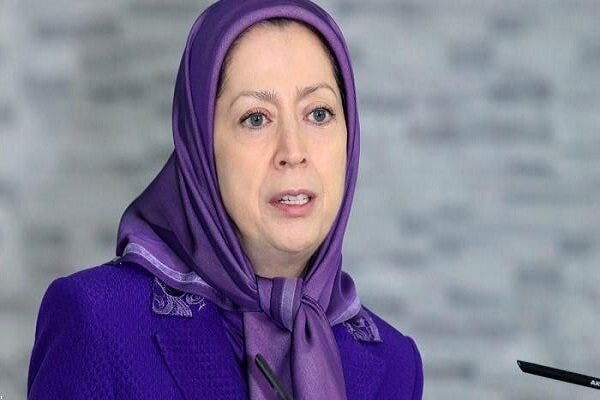The MEK by any means against Iran: the aim is to push the West to attack Tehran
The Mojahedin-e-Khalq even went as far as self-sabotage to try to shape and direct anti-Iranian narratives.
What follows is my English translation of an article by Alireza Niknam, published on ComeDonChisciotte.org on 30th October 2024. (All formatting original).
The Mujahideen-e-Khalq (MEK), a controversial Iranian opposition group, has long been involved in complex geopolitical games, often positioning itself against the Islamic Republic of Iran. In recent months, the group has claimed that Iran is responsible for a series of attacks on its bases. However, credible sources and investigative reports suggest a different and more cynical narrative: the MEK itself may have orchestrated these attacks to garner international sympathy, manipulate the media narrative, and reduce pressure from Western governments.
The MEK's self-inflicted attack
One of the most recent incidents involved an attack on one of the MEK's buildings. The group immediately blamed Iran for the attack, following an established pattern of blaming Tehran whenever their security is compromised. However, independent observers have raised doubts about the credibility of this claim. Some pointed out that the nature of the attack seemed highly suspicious and lacked substantial evidence of external involvement.
According to informed sources, the MEK may have staged this incident in an attempt to gain headlines and international condemnation of Iran. The group's leadership seems increasingly desperate to deflect attention away from countries like Albania, France, Sweden, and the United States, where the MEK's activities have come under increased scrutiny in recent years. Albania, in particular, has been home to many MEK members, and reports have emerged that the country's government is reconsidering its relationship with the group due to increasing pressure from Iran and internal security concerns.
History of MEK attacks on Iran
In recent months, the MEK has intensified its attacks against Iranian military and government targets. These attacks have included sabotage operations and small-scale militant actions targeting Iranian infrastructure and military installations. The MEK took responsibility for many of these attacks and, in some cases, they were reported by media channels sympathetic to the organisation.
During the Iranian New Year (Norooz) celebrations in March 2024, Maryam Rajavi, the elusive and controversial leader of the MEK, claimed that the group had carried out 3,200 terrorist attacks against Iranian military bases in recent months. Although this number is difficult to verify independently, it suggests a concerted effort by the MEK to intensify its militant activities against the Islamic Republic.
MEK strategy to manipulate international perceptions
Given the MEK's history of violent opposition to Iran, the possibility that it staged the recent attack on its palace cannot be ruled out. The MEK could use these self-inflicted attacks to create a broader anti-Iran narrative that could influence international opinion. This tactic would serve multiple purposes:
Sympathy from Western nations: The MEK has long positioned itself as a victim of Iranian aggression, portraying the Islamic Republic as a ruthless government that wants to silence dissent. By claiming to be the target of Iranian attacks, the MEK seeks to reinforce this narrative, thereby attracting the sympathy and support of Western countries.
Deflecting Western scrutiny: The group is increasingly under scrutiny by its host countries, notably Albania, France, Sweden and the United States. Some Western governments have begun to question the MEK's methods of militancy and its potential to destabilise the region. By blaming Iran for these attacks, the MEK hopes to distract these governments from investigating the group's domestic operations and focus attention on Iran instead.
Increased regional tensions: The MEK's accusations against Iran, along with its militant operations, contribute to wider geopolitical tensions in the Middle East. By producing attacks against its own assets and blaming Tehran, the MEK contributes to a climate of hostility that may favour anti-Iranian factions both inside and outside the region.
The MEK's broader scenario against Iran
The MEK's actions have a broader strategic dimension. By staging attacks against its own assets and blaming Iran, the MEK appears to be laying the groundwork for a more significant anti-Iran campaign. This could be part of a calculated effort to convince Western nations to intensify sanctions against Iran, to further isolate the Islamic Republic diplomatically, or even to justify future military interventions.
Attacks on MEK bases - whether real or staged - serve as convenient events to push a broader agenda against Iran. Given the MEK's history of manipulating narratives, it is plausible that these incidents are used as part of a broader campaign to destabilise the Iranian government and strengthen the MEK's position as a key opposition force. The group has a long-standing ambition to overthrow the Iranian government, and any opportunity to align with Western interests is seized as a strategic advantage.
Conclusion
The recent attacks on MEK buildings, along with its militant activities aimed at Iran, indicate a group that is actively seeking to shape the international narrative in its favour. Possibly by facilitating attacks on its premises, the MEK is not only trying to deflect pressure from Western countries, but is also laying the groundwork for a broader anti-Iranian scenario. This tactic, designed to manipulate media and political narratives, reflects the MEK's long-standing strategy of using violence, deception, and propaganda to achieve its broader goals.
As the MEK continues to navigate the complex geopolitical landscape, its actions are likely to remain an element of confrontation, both in the West and in Iran. The group's ability to manipulate events in its favour, however, may not go unnoticed for long, especially as more countries begin to take a closer look at its operations and intentions.






Been reading Iran news about the jaish al-adl (sunni) terrorist group attacking Iranian police along the Iran Pakistan border. Both Iran and Pakistan have agreed to sharing intelligence on this group and have recently intervined on jaish al-adl both in Iran and Pakistan. I'm curious as to what is their method of state support?
some context - even if from a usa propaganda source..
https://en.wikipedia.org/wiki/People's_Mojahedin_Organization_of_Iran